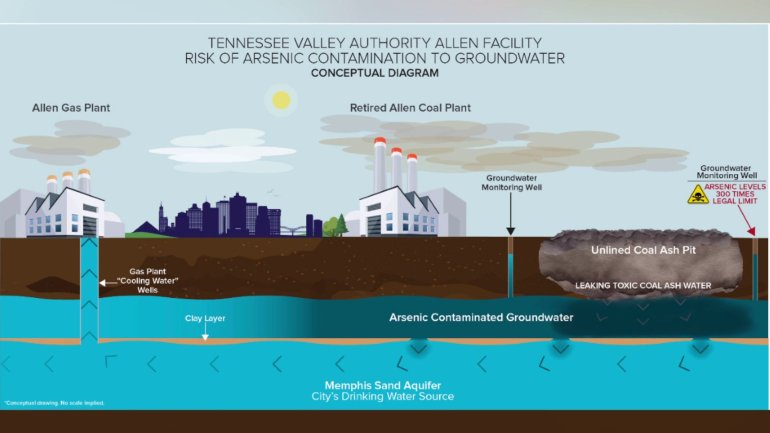MEMPHIS, Tenn. — The Tennessee Valley Authority has released new information about the safety of drinking water in the Memphis area, and now experts in the field are sounding the alarm.
The TVA retired the Allen coal plant at the center of the report in 2018, but there are still a lot of toxins including arsenic in the coal ash pits left behind.
In 2015, the EPA mandated the TVA study the effects of the toxins and release them to the public. They released the first report Friday.
“What the report did confirm is there’s a hole in the layer that’s supposed to protect city’s drinking water source from ash contamination,” said Amanda Garcia, an attorney with the Southern Environmental Law Center.

The report showed a gap in the clay underground layer, which separates the ash pit from the drinking water below and is supposed to protect the drinking water.
Experts disagreed on whether that could pose a risk to the Memphis aquifer.
“We absolutely know there is no risk to the drinking water from anything going on at Allen,” said Scott Brooks with the TVA.
“The city’s drinking water source is vulnerable to contamination from TVA’s coal ash pit,” Garcia said.
MLGW representatives wouldn’t say whether they think the water could get contaminated happen in the future but did say they test the water often and haven’t detected any issues.
They’re also collaborating with researchers at the University of Memphis on a protection plan.
Experts did agree the toxins in the coal ash pond need to be moved. The TVA is working to do that this year. They didn’t have an exact timeline, but did say they’d open the discussion for public comment.




































